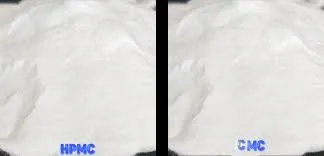
Dec . 01, 2024 12:24 Back to list
hydroxyethyl cellulose
The Versatile Applications of Hydroxyethyl Cellulose
Hydroxyethyl cellulose (HEC) is a non-ionic, water-soluble polymer derived from cellulose, a natural polymer obtained from cotton and wood pulp. This unique compound is widely used across various industries due to its versatile properties, including thickening, gel-forming, and stabilizing abilities. HEC has garnered significant attention for its applications in personal care products, pharmaceuticals, food, and construction. This article delves into the characteristics of HEC and its myriad applications, showcasing why it is a valuable ingredient in various formulations.
Properties of Hydroxyethyl Cellulose
One of the most distinguished properties of HEC is its ability to act as a thickening agent. When dissolved in water, HEC generates a viscous solution, which can enhance the texture and consistency of products. Additionally, HEC is known for its excellent water retention capabilities, making it instrumental in formulations where moisture conservation is crucial. Its non-ionic nature means that it is compatible with a variety of other compounds, whether ionic or non-ionic, which broadens its usability in different applications.
HEC is also characterized by its stability across a wide range of pH levels. This stability is essential for products that may encounter varying pH conditions during their shelf-life or application. Furthermore, HEC is generally regarded as safe for use in many formulations, making it a favorable choice for both industrial and consumer products.
Applications in Personal Care
In the realm of personal care and cosmetics, HEC serves as a critical ingredient in products such as lotions, shampoos, creams, and gels. Its thickening properties contribute to the smooth and luxurious feel of these formulations, while its ability to retain moisture helps to hydrate and protect the skin. In shampoos and conditioners, HEC not only improves texture but also enhances the product's ability to distribute evenly through the hair, leading to better performance.
Moreover, HEC is utilized in various specialized cosmetic products, including makeup and sunscreens. Its film-forming ability aids in delivering a protective layer on the skin, improving the longevity of the cosmetic effects. As a result, HEC is highly sought after in the formulation of waterproof or long-lasting makeup products.
hydroxyethyl cellulose

Pharmaceutical Uses
In pharmaceuticals, hydroxyethyl cellulose plays a critical role as a binder, thickener, and controlled-release agent in drug formulations. Its viscosity-enhancing properties are ideal for suspending active ingredients in liquid medications, ensuring that the medication is well-dispersed and consistent. HEC is frequently used in eye drops and gels due to its compatibility with mucous membranes, providing comfort and reducing irritation.
Additionally, HEC is employed in the development of topical medications and ointments, where it acts as a stabilizing agent that improves the texture and application of the product. The ability of HEC to form gels is particularly beneficial for slow-release formulations, ensuring that the active ingredient is released steadily over time.
Food Industry Applications
The food industry has also embraced hydroxyethyl cellulose as a food additive, particularly for its functions as a thickener and stabilizer. HEC enhances the texture of various food products, including sauces, dressings, and dairy products, contributing to a desirable mouthfeel. Its role as a stabilizer helps prevent the separation of ingredients in emulsions, ensuring that products maintain their homogeneity without requiring extensive processing.
Conclusion
The versatility of hydroxyethyl cellulose is remarkable, with applications spanning across personal care, pharmaceuticals, and the food industry. Its properties as a thickener, stabilizer, and water-retaining agent make it an invaluable ingredient in formulating products that meet consumer demands for quality and reliability. As industries continue to innovate and grow, the importance of compounds like HEC will undoubtedly expand, solidifying its place as a key player in modern formulation science.
-
Versatile Hpmc Uses in Different Industries
NewsJun.19,2025
-
Redispersible Powder's Role in Enhancing Durability of Construction Products
NewsJun.19,2025
-
Hydroxyethyl Cellulose Applications Driving Green Industrial Processes
NewsJun.19,2025
-
Exploring Different Redispersible Polymer Powder
NewsJun.19,2025
-
Choosing the Right Mortar Bonding Agent
NewsJun.19,2025
-
Applications and Significance of China Hpmc in Modern Industries
NewsJun.19,2025







